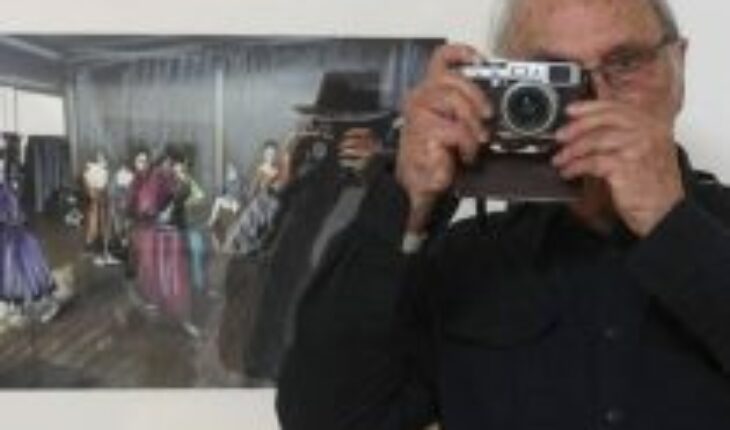The death at the age of 91 of director Carlos Saura, who this Saturday was going to receive the Goya of Honor for his entire career, has caused a deep commotion in Spanish cinema and, incidentally, in culture, politics and society.
The news has especially impacted the city of Seville (south), where the annual Spanish film awards will be presented, including the Goya de Saura, which will be collected by two of his children.
One of them, Antonio Saura, told EFE that his father was “a huge filmmaker who explored everything and until the last moment.”
Reactions
The Film Academy lamented the death of one of the directors “fundamental in the history of Spanish cinema” for films such as “La caza”, “La prima Angélica”, “Cría cuervos” and “Carmen”, and which won national and international awards.
“We are very affected, we knew that his health condition had deteriorated in recent days, but we did not expect this to happen,” the president of the academy and friend of Saura, Fernando Mendez-Leite, told reporters.
The French actress Juliette Binoche, awarded with the International Goya 2023, was also dismayed.
“His cinema will never die. See you forever”, highlights the message of the Spanish Royal House published on Twitter along with a photograph of Felipe VI and Queen Leitizia with the filmmaker.
The President of the Government of Spain, Pedro Sánchez, referred to him as “a fundamental figure of Spanish culture”, with a talent “that is and will always be the heritage of our history”.
“In his career he received all imaginable awards and, above all, the affection, appreciation and recognition of all of us who enjoy his films,” added the Minister of Culture, Miquel Iceta.
The National Institute of Performing Arts and Music defined him as a “visionary”, who dedicated part of his filmography to “dignify” flamenco and Spanish dance and export them “halfway around the world”.
“With Saura dies a very important part of the history of Spanish cinema,” actor Antonio Banderas also said in networks, and leaves “an indispensable work for deep reflection on the behaviors of the human being.”
The producer Agustín Almodóvar, brother of Pedro Almodóvar, considered that with the deceased filmmaker “the last classic director” leaves.
Also moved was the singer Jeanette, interpreter of the song “Porque te vas”, a song that Saura included in the soundtrack of her film “Cría Cuervos”, awarded at the Cannes Film Festival.
Biography
Born in 1932 in Huesca (northern Spain), Saura is the author of mythical films of Spanish cinema such as “La caza”, “La prima Angélica”, “Cría cuervos” and “Ay, Carmela”.
According to sources told Efe to the family of Saura, whose health had worsened in the last eight days since the fall suffered last September, the filmmaker was able to say goodbye to his family and friends and had left “everything organized”, because he wanted to die at home.
Despite his state of health, Saura premiered just a few days ago his latest work, the documentary “Las paredes hablan”, where he reflects on the origin of the artistic drive.
On the occasion of this premiere, in statements to EFE, the filmmaker said that the first thing he saw in his life were the films “of Walt Disney” and explained, in reference to his latest work, that “art and the creation of art are part of the essence of the human being, no matter how much the years pass, no matter how much times or fashions change.”
Regarding his memory of why he decided to dedicate himself to cinema, Saura told EFE that at home, “as far as possible,” the arts were promoted because his mother was a pianist, “although she never wanted any of the brothers to dedicate ourselves to that, because she said it was very hard.”
“Little by little I developed as a photographer, I went to the festival of Granada -Spain- as an official photographer and there I began to move in the world, but I would never have imagined directing more than fifty films, having directed opera, theater, having made photo exhibitions, having published novels …”, he added.
Spanish cinema says goodbye to a filmmaker who did not make films “to please anyone or to receive recognition”, but because he “liked”, because through his work he was able to tell the stories that “came to mind” and “play with music”.
Of course, for Saura receiving the Goya of Honor was a “great joy”.
Follow us on





